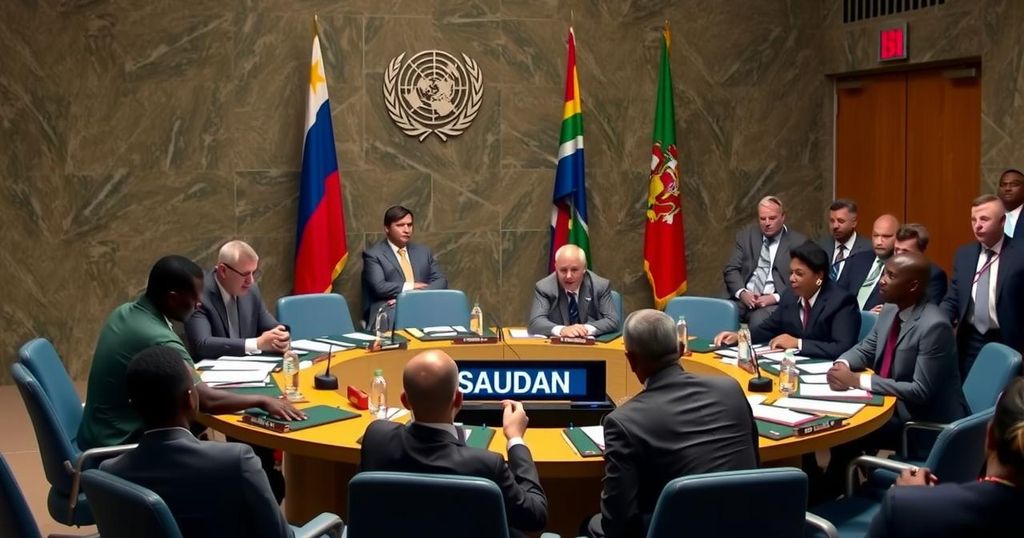Russia Vetoes UN Resolution Calling for Ceasefire in Sudan

Russia vetoed a UN Security Council resolution urging an end to hostilities in Sudan on November 18, 2024, amid a conflict between rival military forces. British officials criticized Russia’s obstructive stance, while the humanitarian crisis worsens as millions face severe food shortages due to ongoing violence.
On November 18, 2024, during a meeting at United Nations headquarters, Russia exercised its veto power against a UN Security Council resolution aimed at halting hostilities in Sudan, where a conflict between rival military factions has persisted since April 2023. The resolution, drafted by Britain and Sierra Leone, urged both sides to immediately cease fighting and commence negotiations towards a national ceasefire. British Foreign Secretary David Lammy condemned Russia’s action as a “disgrace,” accusing it of obstructing unified council efforts. The ongoing conflict, which has resulted in numerous casualties and widespread displacement, has left millions of civilians facing severe humanitarian crises.
The conflict in Sudan primarily arises from power struggles between General Abdel Fattah Al Burhan’s regular army and the paramilitary Rapid Support Forces (RSF) led by General Mohamed Hamdan Daglo. This civil strife has escalated since a coup in 2021, resulting in tens of thousands of deaths and the displacement of over 11 million individuals. The UN Security Council’s inability to effectively address the situation is evident, as internal divisions, particularly between Russia and the United States, have paralyzed discussions. Russia’s alignment with General Burhan during negotiations has further complicated the prospects for peace. The draft resolution was designed to call for an end to violence and ensure humanitarian access, yet was met with Russia’s skepticism. Despite the humanitarian urgencies cited by UN officials, including the dire needs of 26 million civilians threatened by food shortages, the resolution was ultimately rejected by a politically divided Security Council.
In summary, the Russian veto against the ceasefire resolution marks a significant impediment to international efforts aimed at resolving the humanitarian crisis in Sudan. It reflects broader geopolitical tensions within the UN Security Council, with disputes primarily between Russia and the United States influencing the council’s ability to act. The ongoing conflict continues to devastate civilian lives, underscoring the urgent need for a unified international response to facilitate peace and humanitarian access.
Original Source: www.jordantimes.com






